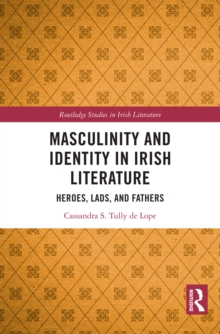
The Art of Translation in Seamus Heaney’s Poetry : Toward Heaven EPUB
by Edward T. Duffy
Part of the Routledge Studies in Irish Literature series
EPUB
Description
The Art of Translation in Seamus Heaney’s Poetry is a critical study of the poet's later work.
While exploring his practice as a translator, it also traces his increasing preoccupation with the possibilities and conditions of translation in the theological sense of being lifted up in spirit.
To the work of this philosophical poet, who would be both “earthed and heady” this book brings the insights of ordinary language philosophy as practiced by Stanley Cavell.
It devotes separate chapters to Station Island and three later collections: Seeing Things, Electric Light and Human Chain.
The first of these addresses the most fundamental change in Heaney’s life when he acknowledges the “need and chance to re-envisage” his Irish-Catholic upbringing; it is also replete with both the activity and the trope of translation.
Published seven years later, Seeing Things begins with a translation of Virgil’s golden bough episode and ends with a similar crossing over into the underworld by Dante.
Heaney transforms both into poems about poetry. In Electric Light, Heaney returns to Virgil, but now he concentrates not on the hero of the Aeneid but on Virgil's earlier efforts in pastoral, a mode of writing that Heaney takes as a model for his own time and place of “devastated order.” Heaney returns to the Aeneid in Human Chain, but this time around he gives all his attention to the scene of the human souls in Elysium seeking rebirth and turns it into an image for the need and chance of pronouncing “a final Yes” to our world and our place in it.
Information
-
Download - Immediately Available
- Format:EPUB
- Pages:224 pages
- Publisher:Taylor & Francis Ebooks
- Publication Date:13/03/2024
- Category:
- ISBN:9781003853718
Other Formats
- PDF from £35.09
- Hardback from £130.00
Information
-
Download - Immediately Available
- Format:EPUB
- Pages:224 pages
- Publisher:Taylor & Francis Ebooks
- Publication Date:13/03/2024
- Category:
- ISBN:9781003853718










